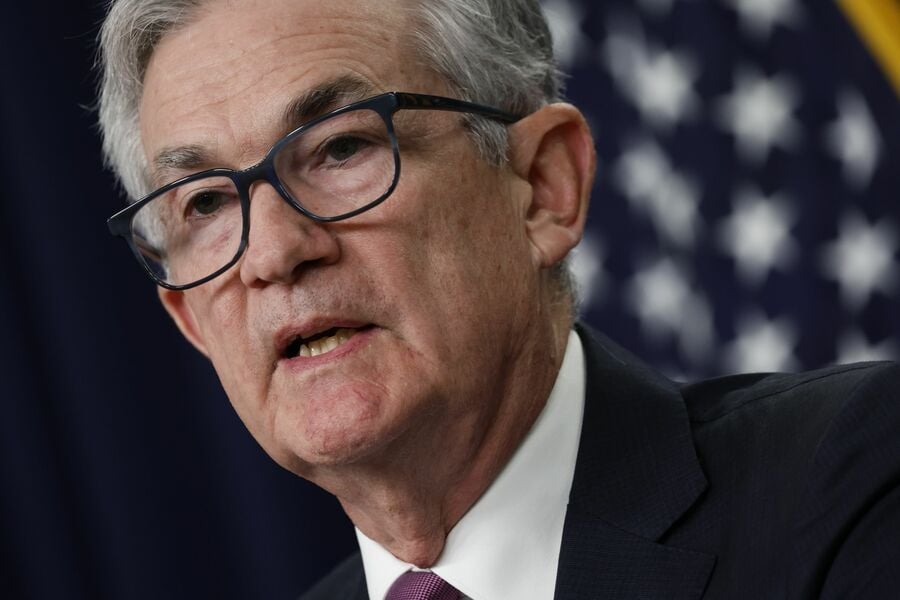

Federal Reserve Chair Jerome Powell acknowledged increased uncertainty in the US economic outlook, but said officials don’t need to rush to adjust policy.
“Despite elevated levels of uncertainty, the US economy continues to be in a good place,” Powell said in remarks prepared for event Friday in New York hosted by the University of Chicago Booth School of Business. “We do not need to be in a hurry, and are well positioned to wait for greater clarity.”
Powell also said recent indicators suggested consumer spending may moderate, while surveys of household and businesses point to heightened uncertainty about the economic outlook.
“It remains to be seen how these developments might affect future spending and investment,” he said.
Powell also said he expected progress on lowering inflation to continue, but unevenly.
“The path to sustainably returning inflation to our target has been bumpy, and we expect that to continue,” Powell said. “We see ongoing progress in categories that remain elevated, such as housing services and the market-based components of non-housing services.”
He addressed recent data points suggesting an increase in consumers’ near-term inflation expectations, but said “most measures of longer-term expectations remain stable and consistent” with the Fed’s goal of 2% inflation.
Fed policymakers are widely expected to leave the central bank’s key policy rate unchanged when they next meet March 18-19. After cutting rates by a full percentage point in the closing months of 2024, officials have broadly signaled they are content to stand pat as they seek more progress on lowering inflation to their objective.
Policymakers are also keen to stay on hold as they navigate uncertainty over President Donald Trump’s economic proposals. Since taking office in January, Trump has slapped new tariffs on China, but seesawed on the specifics of plans to impose fresh levies on Mexico and Canada. He has also promised reciprocal tariffs on many other US trading partners, while pursuing stricter immigration enforcement and increased deportations of migrants.
The combination of such policies could put upward pressure on inflation while weighing on overall economic growth, according to some estimates. That has raised the possibility the Fed may face a scenario of slowing growth with elevated inflation.
“It is the net effect of these policy changes that will matter for the economy and for the path of monetary policy,” Powell said. “As we parse the incoming information, we are focused on separating the signal from the noise as the outlook evolves.”
“While there have been recent developments in some of these areas, especially trade policy, uncertainty around the changes and their likely effects remains high,” he said.
Meanwhile, fresh labor-market figures released earlier Friday showed showed the US economy added 151,000 jobs in February and the unemployment rate ticked higher to 4.1%.
“Many indicators show that the labor market is solid and broadly in balance.” Powell said, adding that it is not a significant source of inflationary pressure.

It's a showdown for the ages as wealth managers assess its impact on client portfolios.

CEO Ritik Malhotra is leveraging Savvy Wealth's Fidelity partnership in offers to Commonwealth advisors, alongside “Acquisition Relief Boxes” filled with cookies, brownies, and aspirin.

Fraud losses among Americans 60 and older surged 43 percent in 2024, led by investment schemes involving crypto and social manipulation.

The alternatives giant's new unit, led by a 17-year veteran, will tap into four areas worth an estimated $60 trillion.

"It's like a soap opera," says one senior industry executive.
RIAs face rising regulatory pressure in 2025. Forward-looking firms are responding with embedded technology, not more paperwork.
As inheritances are set to reshape client portfolios and next-gen heirs demand digital-first experiences, firms are retooling their wealth tech stacks and succession models in real time.
